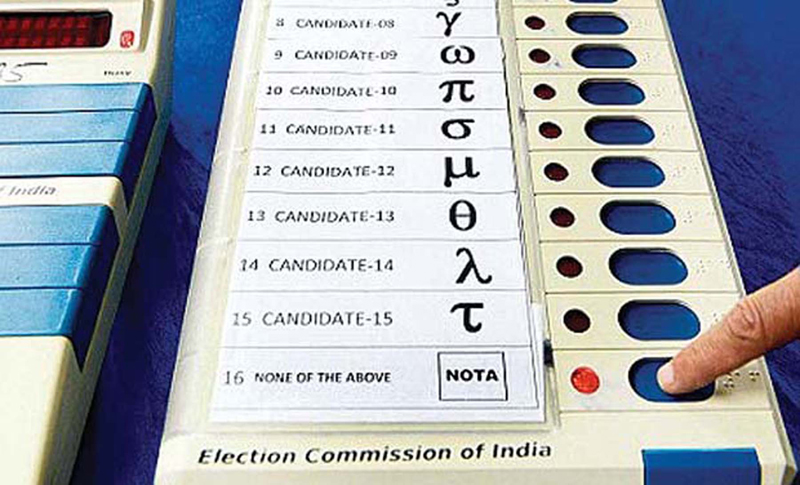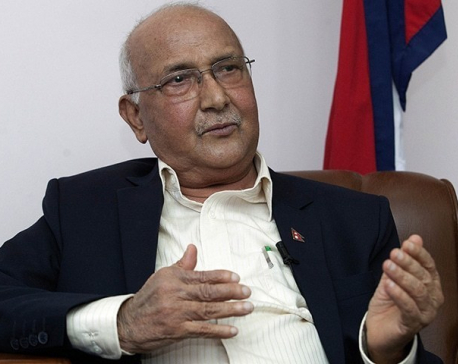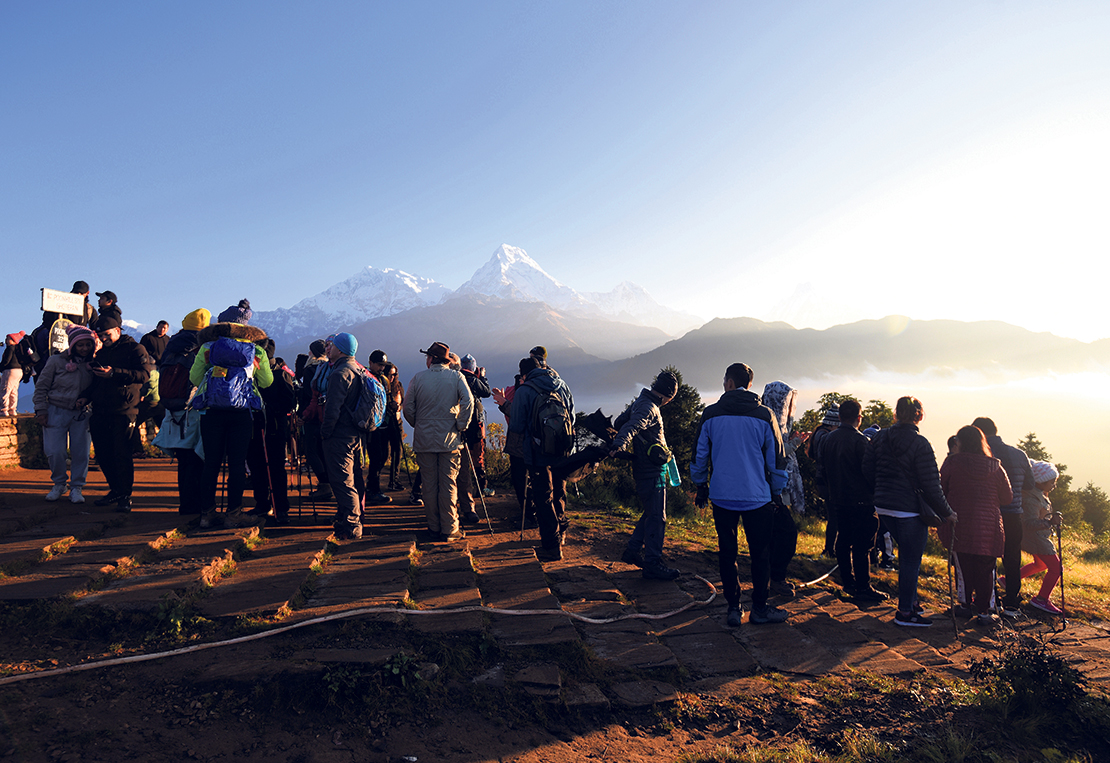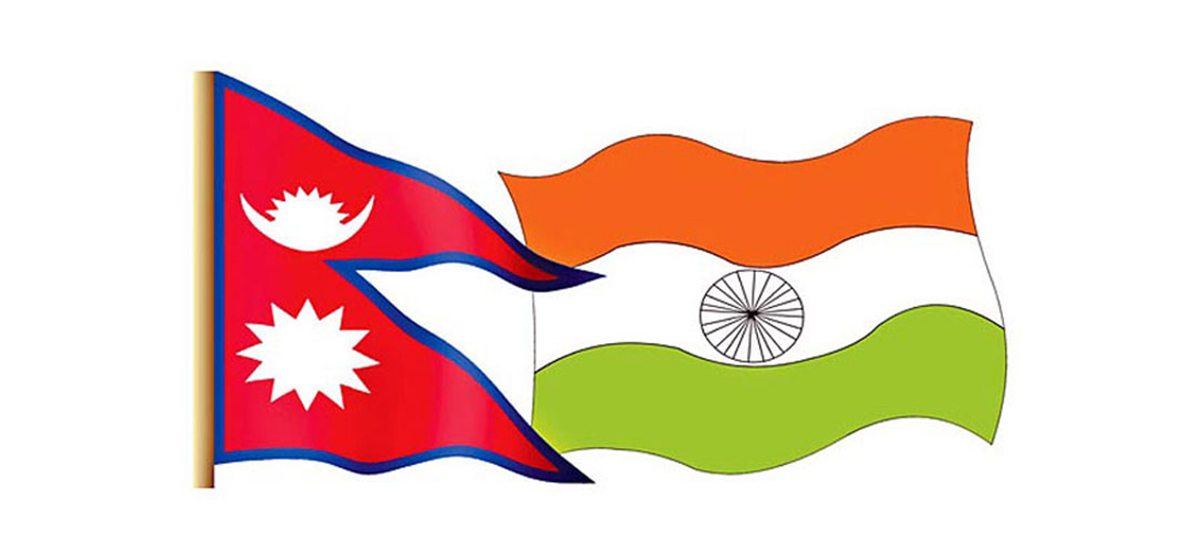
OR

More from Author
Providing electors maximum choice is the most democratic practice. NOTA provision does just that
Secret balloting is a supreme democratic practice of electing people’s representatives.
The most important aspect of electioneering is to guarantee voting right to every eligible voter under a jurisdiction. Voters given an opportunity to express their minds on ballot freely and fearlessly among the candidates contesting an election is termed universal suffrage. In electoral democracies that use paper ballots, electors can put a mark on the designated place on the paper to indicate their choice. In democratic elections voters may opt to submit a blank ballot also. Electors, in some cases, could scratch the paper ballot intentionally or it could be spoiled by mistake.
In such cases, how these ballots are treated during counting of votes varies according to the predefined protocols of the election management body. If such rules are not set in advance, the counting process could be hindered. In some countries ballots having no mark are also counted as invalid. There also are countries where blank votes are separately counted from invalided or scratched ballots. In the latter cases, counting of blank votes separately has a distinct purpose.
The purpose of counting blank ballots separately, in this case, is that the voter is deemed to be not interested in any of the candidates. The fully blank ballot paper can be understood as voters of one particular polling centre or constituency not finding an appropriate candidate on the ballot. This is an indication of rejection of all candidates. So the casting of blank ballot can be taken as genuine political expression. An option to reject all candidates on the ballot, popularly known as Non-Of-The-Above (NOTA), is the most democratic practice.
An evolving process
Like other developed democracies and some South Asian countries, Nepal has also begun efforts to enforce this option in its elections, mainly after the 2014 Supreme Court order to concerned authorities to include the NOTA option in future elections. This provision, as the apex court noted, is to provide an opportunity to voters who want to participate in election without voting for any of the candidates. The order is mandatory, not only for the Election Commission but all government agencies. The commission, by stepping on the court order, has also proposed the NOTA option in the draft bill related to management of local elections.
Up until now the electoral practice in Nepal has been that voters willing to express neutrality could either remain at home or intentionally submit a blank or spoiled ballot. In such a situation it could only be presumed that voters not turning up at the polling centers on the Election Day were either apathetic to the electoral process or not willing to elect any of the contesting candidates.
Even the Electronic Voting Machine (EVM) introduced in a few constituencies in the second Constituent Assembly elections did not have an option for ‘NOTA’ nor was there such a provision in the electoral law. Since the EVM used in Nepal was a conventional electronic gadget with limited options, you could only make a positive choice among the candidates set up in the EVM. However the EVMs used by Election Commission of India in the election of 2014 were customized for NOTA option.
Democracy is all about citizens’ participation in governance, directly or indirectly. In exercising such rights citizens should be able to freely participate in electing their representatives on the basis of universal suffrage. It means that citizens meeting criteria of age and other reasonable provisions should be able to vote and stand for elections. Any limitations to the right to stand for elections need to be “reasonable” as stated in Article 25 of the International Covenant on Civil and Political Rights.
In established democracies voters would have a broad range of candidates and policies to choose from. If voters do not find a good choice among the listed candidates, they tend to stay neutral or leave the ballot blank. Non-participation in elections is not a democratic practice. Therefore, modern democratic world has accepted that positive choices should be offered in the ballot with option of NOTA. This is not very costly either.
In this context, the Supreme Court of India took the view that “democracy is all about choice. This choice can be better expressed by giving the voters opportunity to express themselves unreservedly and by imposing least restrictions on their ability to make such a choice”. The contention is that giving alternative choice will have a positive effect on political parties, thereby the whole of democratic polity.
If a large number of voters opt for NOTA, the political parties eventually will have to acknowledge that there was a problem with candidates. So political parties will be forced to field candidates with high integrity. Gradually, there will be a systemic improvement in the quality of electoral candidates and the political parties will be forced to accept the will of the people.
Democratic electoral polity is a system of alternative choices. This is one of the main reasons the Election Commission of India in 2009 moved the Supreme Court of India to introduce the NOTA option in the ballot. The then government and some non-governmental organizations initially did not appreciate this move. However, after four years the Supreme Court of India passed a decision ordering the election body to include a NOTA options in elections. Such an option is equivalent to a blank vote on a ballot declaring a rejection of all candidates.
The fear psyche
This is considered a supreme democratic practice but it also brings some complications.
What should you do if NOTA gets majority during vote count? The straightforward answer would be that the entire election of the constituency where NOTA gets majority is re-run.
This is costly, both financially and in terms of the political stability this might result in.
Normally NOTA does not get majority, but you never know. In the Indian election of 2014, NOTA received approximately one percent of all cast votes. In EVM, there was no other type of invalid votes except the NOTA option. The Indian results indicated electors wanted to reject all candidates in some cases.
In most NOTA exercising countries the vote count under NOTA are kept separately and not treated as invalid votes. But in India they are treated as invalid votes. In some countries the candidate with the highest number of votes is declared a winner, even if NOTA votes outnumber the winning candidate’s tally. Unless otherwise decided, the votes counted on NOTA option will be a symbolic form of protest.
If EVMs are not used, how a NOTA vote and a blank vote are recorded and interpreted is important. This will not have an effect on who is elected but it is still important to clarify some issues like whether choosing NOTA means is tantamount to rejection of all candidates or if blank votes mean electors found the ballot too complicated.
The purpose of NOTA is to offer electors demonstrative neutrality. NOTA votes need to be counted separately to get information on the number of ballots that are incorrectly marked. This information in turn can be used to improve ballot design or to better educate voters. Where EVM is in use, voters would surely press one symbol belonging to a particular candidate. There will be no possibility of voter coming out of booth without pressing one key as they will be allowed to come out only after there is an audible sound confirming that a vote has been cast.
Providing electors maximum choice is the most democratic practice. NOTA provision is adopted primarily to encourage all electors to exercise the right to elect or reject. Again, this provision also encourages political parties to nominate candidates of high integrity.
SO NOTA will help correct unethical and immoral aspects of electioneering. The cost and complexities added in provisioning NOTA is insignificant compared to the enhancing of democratic values, norms and standards it entails.
The author is former chief election commissioner of Nepal
You May Like This

'Right to reject' removed from election bill
KATHMANDU, Jan 28: Going against the Supreme Court order, the government and a parliamentary committee have removed the right to reject... Read More...

Govt drops right to reject provision in elections
KATHMANDU, Dec 30: The government has dropped the Election Commission's proposal to include a 'right to reject' option for voters in... Read More...

Reject or not to reject: CPN-UML in a Hamletian dilemma over federalism
It seems that the agenda of federalism has become a burden which the main Opposition CPN-UML is no longer interested... Read More...



Just In
- 16 candidates shortlisted for CEO position at Nepal Tourism Board
- WB to take financial management lead for proposed Upper Arun Project
- Power supply to be affected in parts of Kathmandu Valley today as NEA expedites repair works
- Godepani welcomes over 31,000 foreign tourists in a year
- Private sector leads hydropower generation over government
- Weather expected to be mainly fair in most parts of the country today
- 120 snow leopards found in Dolpa, survey result reveals
- India funds a school building construction in Darchula








_20220508065243.jpg)








Leave A Comment